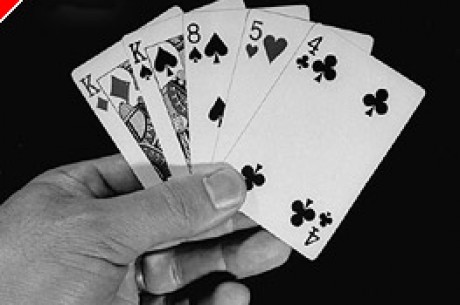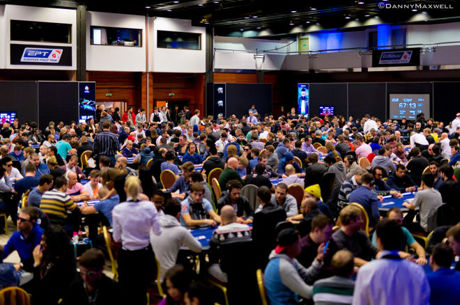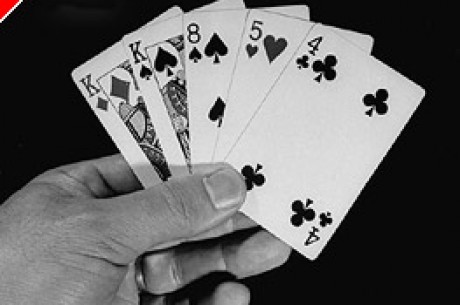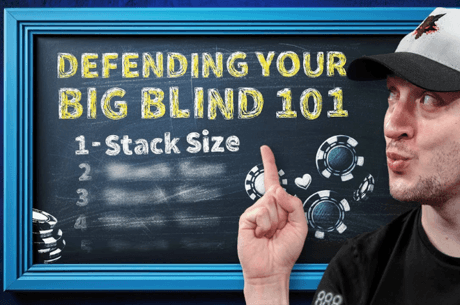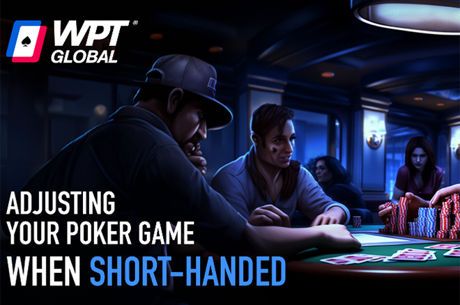Poker Strategy - Getting Involved to Learn More
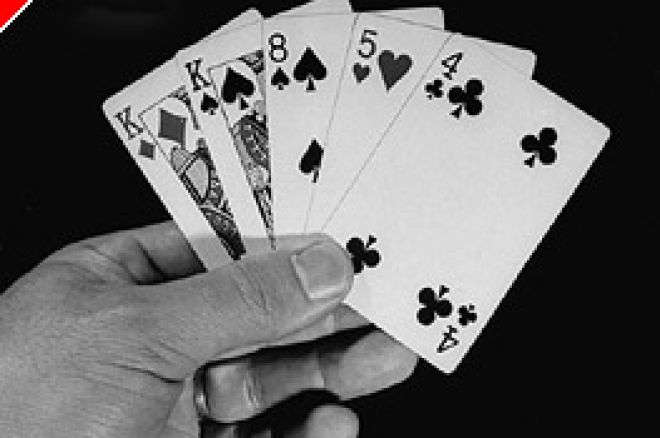
According to the Super System 2, Jennifer Harmon says that she likes to sit back and study her opponents when she first arrives at the table. Doyle Brunson and many other professionals have imparted similar wisdom in their various books. The general idea is that you can learn a lot about your opponents by watching how they play when you're not in a pot and this information comes free of charge.
I praise these fine words, but I feel that this advice is somewhat "incomplete." There is one element that you are not taking into consideration when you are watching a hand from the sidelines: how your opponents react to YOU.
Studying opponents from the sidelines will probably tell you whether the player is on tilt or whether they are playing their A-game. Also, you should pick up on who is loose and who is tight, in a general sense.
But problems and missed opportunities can arise if you don't observe how these opponents react to you in particular.
Let me give you an example of what I'm talking about. I sat down at a table not long ago and across the felt was a middle-aged man who is very loose and fairly aggressive. He had a good stack in front of him. From sitting on the sidelines watching, I noticed that:
a) He would bet if everyone checked.
b) If someone bet into him, he would call all the way to the river with any sort of hand, including gutshots.
c) However, if he flopped absolutely nothing, he would not bet or call at all.
d) Semi-bluffing didn't work against him. When ever someone semi-bluffed him on the flop, he would call and then come out betting again on the turn, no matter what fell.
e) If he was raised on the turn, he would call more often than fold.
f) If he picked up any sort of hand on the river, he would call. For example, if he had J-8 and the board was A-10-7-4-J, he would call the river without question.
Given these observations, a tight game would appear to be the best approach. Finally, I was dealt kings. He raised in a middle position preflop and I isolated him with a reraise. The flop was Q-6-3. He came out betting (as he usually does) and I called as I thought my hand was worth a slowplay. On the turn, he checked. I bet and to my surprise he folded fairly quickly
I found this to be rather peculiar and made a mental note of it. A few hands later, I was fortunate enough to be dealt kings again. I raised preflop and he called. The flop was 10-9-5. He bet and I raised. He called and the turn card was a 3. He checked, I bet and he folded.
Now I have played with this guy many times and I usually play conservatively. I believe that he thought that :
a) I will usually check and fold when I have nothing; and
b) I usually have a strong hand when I raise the flop or bet the turn.
In other words, this player partly understood my game-plan was basically betting into me on every flop because he knew I'd fold if I had nothing. However, if I called or raised the flop, this concerned him and he gave up the pot fairly easily after that.
So I switched it on him and began doing what appears illogical from sideline observations: I started bluffing more regularly with great success. In one pot, I managed to check-raised on a semi-bluff at the turn and succeeded. On another hand, I raised the flop and earned a free card - something that no other player at the table had managed to accomplish against him.
So while sitting back and observing this opponent would suggest the adoption of a tight strategy, I found that the way he responded to me when I started to get involved suggested a looser and more aggressive strategy.
This story simply illustrates that your observations from the sidelines may not give you enough information about how your opponents will play against you. You must consider you table image and the only way to obtain this information about yourself is to get involved in a few pots and see how your opponents respond to you. If you simply rely on sideline observations, you are presupposing that your opponents will play the same way against you as they do against other opponents at the table. As you move up in limits, you will notice that this is not often the case.
And when I say "get involved in a few pots" I don't mean getting involved with AA, KK or AK. Try some looser hands and see whether your opponents make mistakes against you. I recall sitting at a table following a tournament victory. I noticed that one player in particular seem rather concerned about me. Now this player was not afraid of betting marginal cards out of position. But when he had QQ against my 8-7 on a flop of K-9-5, he gave me free cards all the way. On the river, when I caught a miracle 6 at no extra charge, he decided to bet into me. Since this player doesn't ordinarily give free cards, but does against me, I played a lot more drawing hands against him.
Conversely, you might find that a player is spiteful because you bad-beated him twice in last weeks session. While you may observe this opponent playing conservative poker against other opponents (while your watching from the sidelines), this player might jump into more pots with weak cards when you raise preflop, simply because he's out for revenge. When this occurs, you need to switch to tight play and watch the spiteful player throw lots of action your way with a marginal draw while you hold AA.
Ed Note: Heads up is the purest form of poker. Great heads up action always at Pacific Poker

